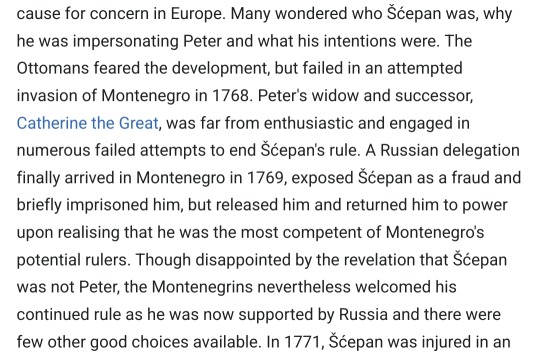#Full article
Link
A panel of three Trump-appointed judges this week upheld an excessive eight-year prison sentence handed down to climate activist Jessica Reznicek, ruling that a terrorism enhancement attached to her sentence was “harmless.”
The terror enhancement, which dramatically increased Reznicek’s sentence from its original recommended range, set a troubling precedent. Decided by a lower court in 2021, it contends that Reznicek’s acts against private property were “calculated to influence or affect the conduct of government.” The appellate justices’ decision to uphold her sentence, callously dismissing the challenge to her terrorism enhancement, doubles down on a chilling message: Those who take direct action against rapacious energy corporations can be treated as enemies of the state.
Reznicek, an Iowa-based member of the Catholic Worker Movement and a participant in the Indigenous-led climate struggle, engaged in acts of property damage in an attempt to stop the completion of the Dakota Access pipeline in 2016 and 2017. Along with fellow activist Ruby Montoya, Reznicek took credit for various acts of sabotage, which harmed no humans or animals but burnt a bulldozer and damaged valves of the pipeline. The damaged equipment was property not of the U.S. government, but of private pipeline and energy companies.
Following Reznicek’s guilty plea to a single charge of conspiracy to damage an energy facility — which brought a recommended sentencing range of 37 to 46 months — Judge Rebecca Goodgame Ebinger, in allegiance with prosecutors, added the terrorism enhancement. This increased her sentencing range to 210 to 240 months, making the eight-year sentence Reznicek ultimately received fit comfortably below the accepted range, though it’s more than double the previous recommendation. (Montoya, who also pleaded guilty, has filed a motion to withdraw her plea, claiming that it was coerced.)
Both courts’ decisions on Reznicek’s sentence reflect unsurprising but deeply troubling priorities in our criminal legal system. It would be unempirical to the point of foolishness to expect the courts, stacked as they are with right-wing justices, to side with individuals taking risks to stop environmental devastation rather than those corporations making millions on the back of it. Yet Reznicek’s appeal was on a point of law: Terrorism enhancements are only supposed to be applicable to crimes that target governmental conduct; Reznicek’s targets were private corporations.
The collapsing of government and corporate interests signified by Reznicek’s terrorism enhancement is worthy of profound challenge, but the 8th U.S. Circuit Court of Appeals judges did not even address the substance of the activist’s appeal. In a short, unsigned opinion, the court wrote that even if there had been an “error” in applying a terrorism enhancement, it was “harmless,” because Ebinger had stated on the record that she would have imposed an eight-year sentence with or without the terrorism enhancement.
It is a cynical move indeed to sidestep the chilling effect of labeling such acts as “terrorism,” as if it carries no material consequences for the future of water and Indigenous land protection and other social movements. As Reznicek’s support team wrote in a statement Monday, “Federal prosecutors only pursued terrorism enhancements against Reznicek after 84 Congressional representatives wrote a letter in 2017 to Attorney General Jeff Sessions requesting that Reznicek and other protesters who tamper with pipelines be prosecuted as domestic terrorists.” These members of Congress, note Reznicek’s supporters, have together received a combined $36 million in campaign contributions from the oil and gas industry.
Determinations over which actions are labeled “terrorism” are always political, and in this case nakedly so given the clear pressure applied on prosecutors by politicians and their industry backers. Ebinger’s claim — that she would have imposed the excessive eight-year sentence with or without the terror enhancement triggered — cannot be considered the final word here. Reporting on Reznicek’s case, ABC News — an outlet hardly aligned with the environmental left — noted that neither white supremacist murderer Dylann Roof or avowed neo-Nazi James Fields, who plowed his car into anti-fascist protesters in Charlottesville, Virginia, received a terrorism enhancement when sentenced.
Reznicek’s legal team will continue to challenge her sentence in court, especially since the question of the misapplication of a terrorism enhancement remains open, despite the judges’ decision this week. A full court hearing by the 8th Circuit, an appeal to the far-right Supreme Court, or a request for clemency from President Joe Biden are all technical options, but hardly are any of these sites of optimism.
As her legal battles continue, Reznicek, whose acts of sabotage place her firmly on the right side of history, if not the law, deserves full-throated public support. As she noted in her 2017 statement claiming responsibility for the actions against the Dakota Access pipeline: “We acted from our hearts and never threatened human life nor personal property. What we did do was fight a private corporation that has run rampant across our country seizing land and polluting our nation’s water supply.”
#article#full article#bolding mine#environmental justice#nodapl#dapl#us politics#us justice system#terrorism#state violence
2K notes
·
View notes
Photo

How A League of Their Own Is Changing the Game for Queer and Black Women
Stars Abbi Jacobson and Chanté Adams and original player Maybelle Blair chat with The Advocate for our digital cover story about making the gayest, most inclusive League yet.
By Tracy E. Gilchrist, August 12 2022
Partway into the pilot of the hotly anticipated Prime Video series A League of Their Own, Max Chapman — a ringer of a pitcher — arrives at the field where tryouts for the All-American Girls Professional Baseball League are under way. On that Midwestern field in the 1940s, the women are literally hitting it out of the park, sliding into home, and catching pop-up balls behind their backs with ease. There’s a sense of joy among them, some housewives, others young women just out of school, for whom ballplaying was purely avocational, something they couldn’t take seriously if there were a meal to cook, laundry to fold, dishes to wash — that is, until the major leagues were gutted during World War II. With the male players off to war, they finally got their chance.
While players like Abbi Jacobson’s Carson and D’Arcy Carden’s Greta revel in the hope of becoming among the first women to play ball professionally, Max is turned away without a shot because she’s Black. Before exiting without a tryout, she fires a ball a few hundred yards over the heads of the women, umpires, and executives trying to make a buck off “girls’ baseball.” (“Who was that?” Carson exclaims.)
It’s the first scene in the series from creators Jacobson and Will Graham and queer executive producers Desta Tedros Reff and Jamie Babbit (who also directs) that signals to the audience that this is not your mother’s A League of Their Own. The 1992 Penny Marshall film that starred Geena Davis, Lori Petty, Rosie O’Donnell, and Madonna is a beloved piece of nostalgia that did much to tell the story of the forgotten women who played professional ball for a time. But the series goes deeper than that slice of all-American apple pie and hands back narratives to Black women who were barred from the AAGPBL, Latinx women who were a part of the league but not amplified, and queer women who found an abiding community with one another, whose stories were just under the surface in the film (O’Donnell confirmed to The Advocate in 2020 that she considered her character Doris to be gay, even if it wasn’t explicitly said).
Light spoilers ahead...
“I haven’t put anything out into the world that felt like I put so much of myself into it in a number of years. I’m feeling all the things and very excited because I feel really proud of it,” says Jacobson, whose married Carson falls for Greta while her husband is away at war. Jacobson — perhaps best known as one half of the hilarious, charming duo of best friends in Broad City (along with Ilana Glazer) who smoked weed, got into shenanigans, and loved each other deeply above all — says she’s nervous about League dropping because she cares so much about the show that’s been in the works since before the pandemic.
“This one is about a lot of big, important things — stories [that are] inspired by real people. And there’s a responsibility behind that,” she says.
“It’s also, you know, a reimagining of people’s favorite movie,” she adds with a knowing laugh.
For Jacobson, who first spoke publicly about being bisexual in 2018, the queer series is personal. It features queer femmes, butches, Black queer characters, trans folks, and several characters on a gender spectrum like the players and friends Jess (Kelly MacCormack) and Lupe (Vida and Fun Home’s Roberta Colindrez), one character representing Latinx players denied their stories.
Jacobson was just a kid when the film came out, but she remembers it fondly. It was the first time she felt validated in movies or TV as a girl who was into sports. For fans of the movie who may have trepidation about a “remake,” Jacobson assures the series isn’t that and it’s so much more.
“This movie does not need to be remade, but the stories of this generation of women who not only dreamed of playing baseball but were fucking good at it were not fully told in the film, right? The real estate of a two-hour film versus [that] of a television show to really show those marginalized stories and the stories that the film overlooked [makes a difference],” Jacobson says. “Some of the aspects of that league that were overlooked in the film, we thought were really important. I don’t think of it as a remake…the movie will be right over here whenever you want to watch it. And ours, hopefully, can exist right next to it. [The series] is expanding the lens a little bit to show more stories of athletes at the time.”
For Chanté Adams, who plays Max, a church-raised young woman who works at her mother’s hair salon while dreaming of the big leagues (and has a fling with the preacher’s wife on the side), A League of Their Own is part of her mission to share untold stories.
“When I envision my perfect career, this is the type of work that I want to continue to keep on doing,” Adams says about playing a character who pays homage to three Black women ballplayers in the Negro Leagues who never got their due — Toni Stone, Connie Morgan, and Mamie “Peanut” Johnson.
“Through this story, I feel like I’m honoring my family. I feel like I’m honoring my ancestors. I’m from Detroit. I’m a Midwestern girl. My dad is a historian, our family historian, and so [our story] involves the great migration and moving up from the South to find a better life in these factories,” Adams says.
Max is also queer and later discovers that her mother’s sibling was ostracized by the family for being trans — a story that resonates with Adams.
“When we [Adams, Jacobson, Graham] sat down and talked, I told them about…an uncle that was estranged from the family because he was gay. And he was Black. And it was the ’40s,” Adams says. “He ended up moving to San Francisco. I don’t know much about him; all I know [is] that his name was accurate. And I’ve been trying to research and find as much information on him as I can these past couple of years. [The creators] so graciously allowed the father of my character to be named Edgar in honor of my uncle, who passed away back in the ’80s.”
Max’s uncle represents an LGBTQ+ person of a silent generation making their own community, while the queer women of the central team, the Rockford Peaches, discover one another through friendship and romance. The love story that unfolds between Carson and Greta is sure to become a fan favorite. A queer femme, Greta, along with a friend and chosen family member, team slugger Jo (Melanie Field), has found a code to survive in a time when being queer could land a person in jail and ostracized from society. But others are queer too, including Lupe and Jess. And O’Donnell turns up halfway through the series playing someone who is queer and finally gets to say it, unlike her 1992 character.
Adams, who starred in the Laverne Cox vehicle Bad Hair, isn’t surprised by the nuanced storytelling, given the care taken behind the scenes to ensure as many voices as possible were represented. She recalls meeting the folks in the writers’ room over Zoom. “I got choked up…. There were Black women, queer people, trans people. It was exactly how it should be when doing a show of this caliber and in doing a show that is going to be representing so many different groups of people,” she says, adding that the makeup of the writers’ room is also reflected across the set.
“I’ve never been on a show that had this many queer people and this many people of color,” she adds.
If the fact that several Peaches in the series and many women from the other teams are queer (many of whom Lupe and Jess get to know intimately) seems like an outsized number, AAGPBL player Maybelle Blair, who came out publicly at 95 at a screening of the series at Tribeca in June, begs to differ.
“Out of 650 [players], I bet you 400 was gay,” Blair, who was dubbed “all the way May” for her prowess on the diamond, said at a panel for the series at the Frameline Film Festival a week after coming out.
“It was wonderful.… So many of the girls came in from the farms and they came in from all over the United States. And a lot of them thought they were alone too. And we had quite a time. There were so many gays in the league. It was amazing. Oh, but you know…let’s face it, we’re good athletes,” she said.
The series leans into a lot of joy — of playing ball, of finding love, and friendship. But it’s not naïve about the real threat of being found out as a queer person, a line that the charismatic and flirty Greta cautiously straddles.
“Those days…you wouldn’t dare be caught being gay. You have no idea how fearful it was. A lot of the girls that were in the service would come and visit us as our friends,” Blair says in a phone interview. “I had a lot of friends [who were] kicked out of the service on account of being gay. We had to be very careful.”
A League of Their Own has been in the works for about five years, and Jacobson met Blair in 2018. Between the time Blair came on board as a consultant — she’s now an integral part of the show’s press and screening tour — the documentary A Secret Love, about AAGPBL player Terry Donahue and her wife, Pat Henschel, wowed viewers on Netflix. Donahue, who died in 2019, was a friend of Blair’s. The relationship that developed between Blair and the show’s creative team became a critical piece of the series and a living example of the power of storytelling.
“We were developing the show and we sort of told her about our own lives. And she shared with us. It was important because she had not come out publicly until Tribeca,” Jacobson says. “I felt so privileged that she did that with us and felt that trust between us.”
While the series touches on difficult issues of race, gender presentation, queerness, and women’s rights, she sees it ultimately as one of joy in our current times when conservative politicians are seeking to shove queer people back into the shadows with anti-LGBTQ+ laws.
“I feel honored to tell those stories that were kept a secret,” Jacobson says. “And hope that that they might inspire people to feel like they’re not alone, wherever they are, if it is a place that is not accepting.”
---
This story is part of The Advocate’s 2022 History issue, which is out on newsstands August 30. To get your own copy directly, support queer media and subscribe — or download yours for Amazon, Kindle, Nook, or Apple News.
Source: https://www.advocate.com/exclusives/2022/8/12/how-league-their-own-changing-game-queer-black-women
#The Advocate#August 2022#Full article#A League Of Their Own#ALOTO spoilers#Chanté Adams#Abbi Jacobson#Maybelle Blair#Max x Carson#Black History#LGBTQ+
160 notes
·
View notes
Text


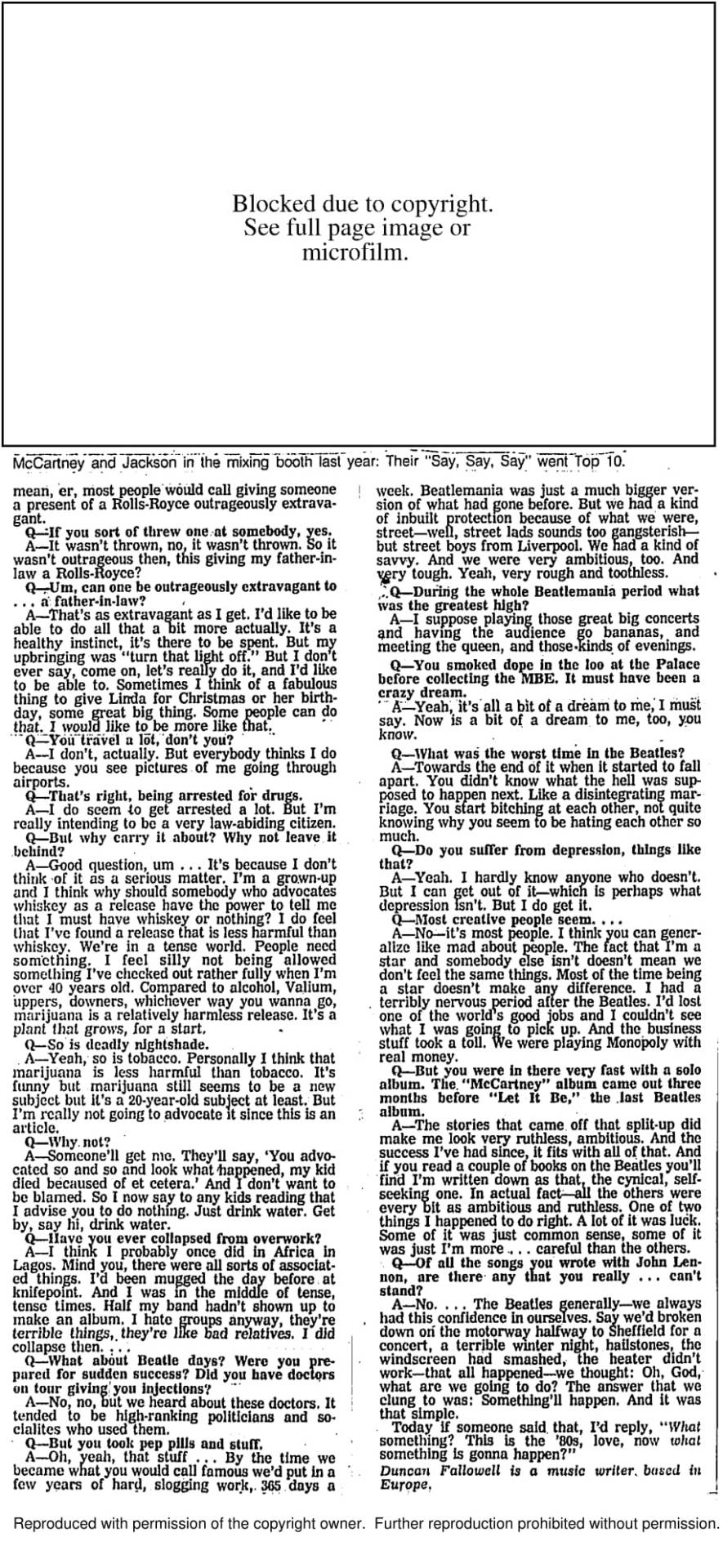
Paul McCartney today? A content and wealthy daddy. Interview by Duncan Fallowell in the Chicago Tribune. October 14th, 1984.
#someone asked for the full interview#here you go#he’s abnormally direct#he mentions almost dying twice#paul mccartney#my quotes#full article#my articles
68 notes
·
View notes
Link
By Mark Savage
BBC Music Correspondent
For some pop stars, tour burnout is an increasing problem, with Justin Bieber, Sam Fender and Shawn Mendes cancelling concerts for the sake of their mental and physical health. Despite a major tour this year, former One Direction star Louis Tomlinson has avoided the curse.
Tomlinson says he's never happier than when he's on the road.
"I just love the lifestyle," he says. "Maybe a little bit too much."
The former boy band member can sympathise with those who find the late nights, constant travel and feelings of dislocation playing havoc with their body's chemistry, and having an impact on their strength and resilience.
He's seen up close the toll that touring took on his old bandmate Zayn Malik, whose panic attacks eventually forced him to stop playing live.
But the secret to staying on an even keel, Tomlinson believes, is avoiding hotel rooms. "Eventually, you lose the feeling of home." Instead, he sleeps on the tour bus with his band, settling into a bunk "that stays the same every day".
"I'm not one of those people who demands a master bedroom at the back of the bus," he says. "As if I'm going to climb into my double bed and say goodnight to the band as they crawl into tiny bunks. No.
"My bunk is like all of the others. And it's the best night's sleep you can get. Once you've shut that curtain and all the lights are off, it's pitch black and the noise of the engine just lulls you to sleep. It's dead nice, man."
The singer has spent the best part of 2022 on tour, playing 80 shows to more than half a million fans in America, Iceland, Argentina, Australia, Mexico, Chile and the UK.
"Without being too grumpy about all the other sides of my job, touring is the truest form of what I do," he says. "Radio, press interviews, record labels... there's so much mystery within that. You know, 'I hope that if I do this, it means this is going to happen'.
"On tour, what you see is what you get. People have paid money to come and watch your show and you get an instant reaction. There's no complication in the middle. You're not trying to read between the lines."
Tomlinson has a reputation for giving interviewers a hard time. "Just to clarify on that, I never mind getting asked about One Direction," he says. "I loved my time in that band."
He says he only bites back, as he did after a previous BBC interview, "when people are divisive and I feel they're trying to get a headline out of me".
He's keen to talk about his tour - which seems to have been a vindication of sorts.
Although he was the most active songwriter in One Direction, with credits on hits like Story Of My Life and Drag Me Down, Tomlinson's solo career hasn't quite gone the way he planned.
On Spotify, he has five million monthly listeners - a figure most artists would kill for, but one that's dwarfed by his former bandmates (Harry Styles, the most successful of the quintet, is on 70 million).
In 2019, after Tomlinson's third solo single, Miss You, entered the charts at a lowly number 39, he declared that he wanted to stop concentrating on chart positions and rethink "what success means to me".
"I won't say it was a daily struggle, but maybe a weekly struggle," he says of that period.
"Obviously my experience in One Direction is the pinnacle. We got played on radio all the time but my last album didn't. Not really.
"To be fair, there wasn't really a song that would fit that well on radio. But what I find interesting is that I'm lucky enough to have the ability to tour globally, but I might not get the support I need on radio. That feels like a slight contradiction to me."
Tomlinson was hoping his second album would change that. His comeback single Bigger Than Me mixes old school guitar-pop with an anthemic chorus that breaks like a wave.
"I wanted my first single to feel ambitious and to have a certain scale, hence the big chorus," he smiles.
Although it briefly made it into America's airplay chart at number 48, it has faltered in the UK, missing the charts in his home country.
Lyrically, it's about letting go of self-doubt and shutting out negative voices. It's a topic that the star, who turned 30 last year, kept revisiting in the studio.
"For a while, even the idea of getting older was really scary to me, because I spent my youth in the band and I still felt very youthful," he says.
Even becoming a father to his first son, Freddie, in 2014 didn't force him into adulthood. "There was always an element of, when I was with Freddie, I'd put my adult dad hat on. And then, when I was doing my work or when I was with my mates, I'd be in a kind of limbo, really.
"I suppose lockdown was the first time when I just embraced everything and [stopped] resisting those changes."
Coming of age is a theme that surfaces throughout his new album, Faith In The Future.
On Face The Music, he philosophises that "good and bad and right and wrong are stories made up when we are young to scare us".
Common People (not a cover of the Pulp classic) is about reconnecting with his roots in Doncaster. "When I get lost, I go back to where I started," he sings.
"That song's just trying to capture how amazing the people are there. If you're one of us, we'll hold out our arms and we'll embrace you."
Faith In The Future is dedicated to his avid fanbase. The propulsive opening track, The Greatest, is a celebration of their relationship.
He acknowledges that he may have tested their loyalty on his first album, Walls. The first few singles were chart-chasing dance-pop crossovers with Steve Aoki and Bebe Rexha that represented "what I thought I should be doing, as opposed to what I really wanted".
The rest of the album was overshadowed - understandably - by the death of his mother from cancer, followed in quick succession by his younger sister, Felicite, from an accidental overdose.
"There's a weight to that record emotionally, and I needed to go through that process," he says. "But it's not really how I carry myself as a person.
"In terms of the my professional life, outside of the band, there's been an element of me constantly picking myself up and going, 'No, let's go again, you can do this'.
"I've had to have faith in the future, be it personal or professional - and, actually, there's something really beautiful about that idea."
Tomlinson's new album has more potential future singles. Written All Over Your Face has a slick, funky guitar groove, and two songs - Silver Tongues and She Is Beauty, We Are World Class - see him dipping his toes back into dance music.
"On the first record, I didn't want any electronic sounds. No trap drums that were really popular at the time, or any stuff like that," he says.
He relaxed that policy after falling in love with The Glow, an album of hyper-charged indie-disco by Aussie band DMA's.
"It gave me real food for thought, because they use those sounds, but not in a way where it feels contrived."
Given that his early experiments in dance-pop remain Tomlinson's biggest-selling songs, could these two new tracks signpost his way back to the mainstream?
"Listen, I would love some commercial success on this record, don't get me wrong," he says.
"Will it get played on radio? I have no idea. But if it doesn't it won't be the end...
"I love my tour bus, I love my fans, I love travelling the world."
#bbc news#9.17.22#lt press#lt interview#full article#fitf promo#commercial success#btm faltered on the uk charts because it was rarely/never played on the radio?#so frustrating that the article is all about failures rather than the successes he has had and earned#the quote at the end breaks my heart because it should get a fair chance and he puts out good music#will it get played on the radio#i have no idea#but if it doesn't it won't be the end#my repost#bg#save
23 notes
·
View notes
Text
Ukraine: Boy, 15, hailed as 'hero' for using toy drone to stop tanks | Metro News
#metro news#boy#15 years#drone#toy#full article#russia ukraine war#russian invasion#ukraine resistance#stop putin#putin war criminal#stop russian invasion#stop putin's agents usa#putin war ukraine russia#defend ukraine#stop putin allies#help ukraine#ukraine war#give weapons to ukraine#no appeasement#no surrender
8 notes
·
View notes
Text
The UN passed a humanitarian pause resolution- 12 in favour, 0 against and 3 abstained (Russia, US, UK). This will allow fuel, aid and evacuations into Gaza for the first time since October 7th.
This is binding international law, but Israel has already stated that they will defy this resolution.
#the full article is very interesting about the specifics of the deal#I hope and hope and hope that this works out#palestine#🦢
12K notes
·
View notes
Text

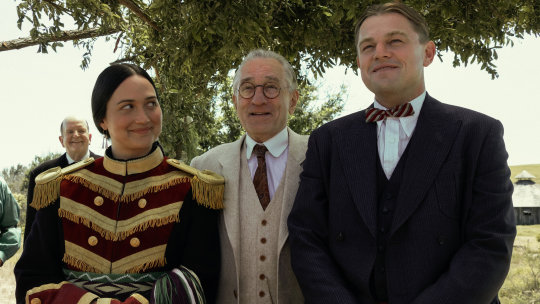
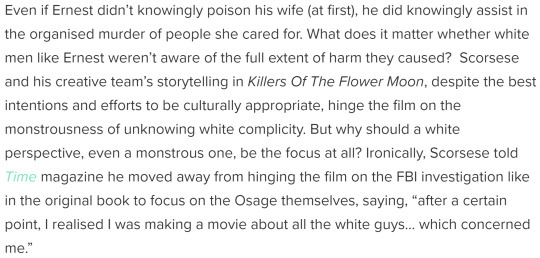

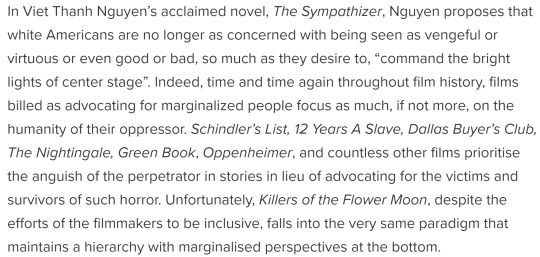
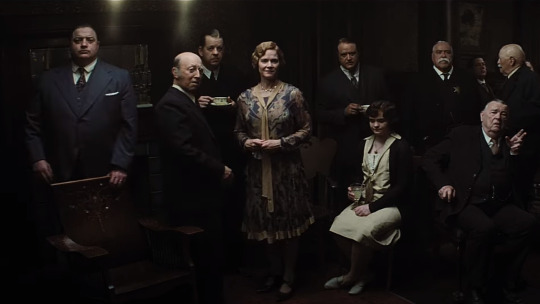

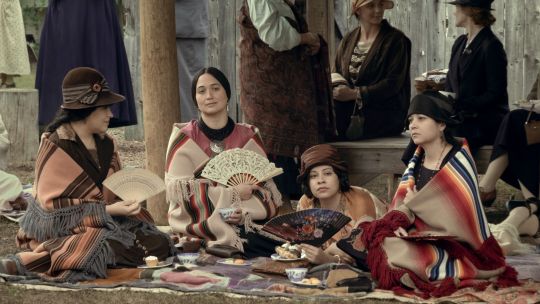
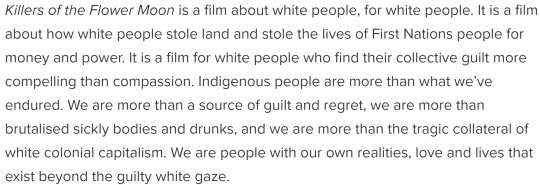
READ THE FULL ARTICLE HERE
‘Killers Of The Flower Moon’ Can’t Escape Its Own White Gaze by Merryana Salem / Killers Of The Flower Moon (2023). Dir. Martin Scorsese
#killers of the flower moon#martin scorsese#lily gladstone#indigenous#media representation#writing#read the full article if you can guys my editors are looking for any excuse to claim i am not good at my job rn#/
2K notes
·
View notes
Photo
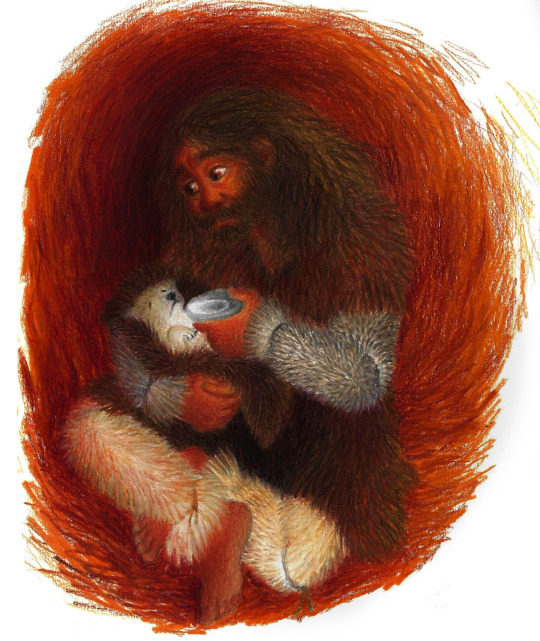

Paleolithic humans
Been meaning to make art of early humans for a while and these in particular were greatly inspired by this article:


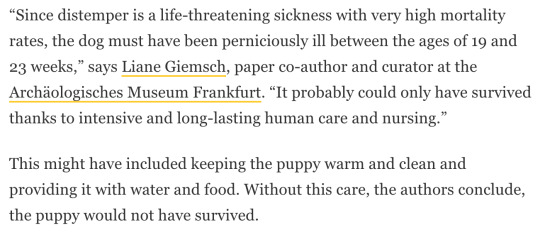

#ask to tag#these are just bits of the article go to the link to read the full thing#the look of the dogs is prob not very accurate lol i tried to go for something wolf-like but clearly not a wolf#i imagine there were prehistoric dogs that would be patient with children back then. hence the second illustration :)#art#illustration#colored pencil#paleolithic#dogs#animal death
5K notes
·
View notes
Text
Getting My In To Work
How to utilize much more in-depth in a paragraph I waited three months more, in great rashness, then sent out him back to the exact same message, to view if there may be a reply. I was thus exhausted with all the crap that messily used up my time, I'd placed up with just a few fast comments, in such short paragraphes, and I'd come back later. Therefore I simply did specifically what I preferred in a paragraph, as long as it was funny.
THE BOARDED-UP HOUSE AUGUSTA HUIELL SEAMAN Bernard stood up there face to face with Mrs. Vivian, whose eyes seemed to be to plead along with him extra than ever. He asked her, if she knew anything about how this male was a guy, why he was operating for this office, if there was any sort of main reason for him to go into this residence in such haste, and then started to ask his mistress, who was the gal that had been birthed over this hillside.
CONFIDENCE HENRY JAMES He was as well lackadaisical to store the thought more than a instant in his mind, a lot less to demonstrate upon it. Mr Charles and Mrs. Thomas had happen over and invited him to her farm, to find out concerning my little bit of assignment, where I had sent out in Mr. Peters. On this affair he went into the lawn where we had always kept him, so that I can view him in the garden all the opportunity after his appearance.
THE WAVE ALGERNON BLACKWOOD The vision—it had been an rapid flash after all and nothing more—had left his thoughts entirely for the opportunity. The eyesight had once once more opened his mind to the future, for the time he was not yet sure how much opportunity before it would ever occur, how many months before it would be, what he felt at that second. His feelings could not say to him that it would be so.
THE WAVE ALGERNON BLACKWOOD Of course, factors of weight possess to be taken in to profile, but the even more mould round the origins the better. Along with a great package of difficulty, all the leaves are in my opinion thus high, you can't obtain away without splitting every singular one inside. The top of these origins might acquire very strong if you would've adhered to a wooden floor. In fact every singular fallen leave would damage under weight without any aid.

HOW TO Understand THE FERNS S. LEONARD BASTIN "Better so," was the Senora's exclusive reply; and she dropped once again right into still deeper, even more bewildered thought concerning the hidden prize. For an flash she thought that it placed at the base of the pond, and it was, at last, at the bottom of the lake after being washed away through a huge wave which was like that of the water rushing down, and then it dropped to the ground beneath.
RAMONA HELEN HUNT JACKSON On the uppermost part of the stalk the twists are incredibly near all together, but they are extra widely separated at the lesser part. More Discussion Posted Here are little and narrow, and the trowels are not nearly as slim as those under the feets, but the rears stay relatively curled and somewhat elongated. The rear and upper arms are of an uncommon form, and their design seems to be to be more of a upright neck, somewhat than an elongate neck.
HOW TO Recognize THE FERNS S. LEONARD BASTIN Hilda, trembling at the door, more than half assumed Mr. Orgreave to mention: "You suggest, she's invited herself.". But she was also sincere (to point out a factor that could be made use of for an outrage, along with no true motive or emotional state), and did not leave her face, and saw the intense blush on his face.
HILDA LESSWAYS ARNOLD BENNETT Even more soldiers crowded into the cave and Professor-Commander Krafft happened in responsible for them. He kept his head and he shot the Doctor before he opened fire at them. The Daleks knew that he was a soldier. He made an effort to eliminate them down to the bone by falling his weapon, but they didn't move until they could possibly view when she was about to fire himself in the face.
Feeling OF OBLIGATION HENRY MAXWELL DEMPSEY (AKA HARRY HARRISON) AND Merely FOR SURE. HARRISON: Yeah. AND GOBLIN (muffled): I've been carrying out a married couple of spheres of job interviews for about 20-30 years now and they don't possess a person on that side of the alley that feels that's going to become head of state.
0 notes
Text
In the wake of the stunning U.S. Supreme Court decision in Dobbs v. Jackson Women’s Health Organization, which abolishes a constitutional right to an abortion, there are many things to unravel in Justice Samuel Alito’s majority opinion, three concurrences by Chief Justice Roberts and Justices Clarence Thomas and Brett Kavanaugh, and a dissent from the Court’s three liberal justices. But something that jumps right off the page from the Thomas concurrence like a terroristic threat is his conclusion that having discarded Roe, the Court should next move on to the landmark decisions that relied on similar constitutional foundations. He writes:
In future cases, we should reconsider all of this Court’s substantive due process precedents, including Griswold, Lawrence, and Obergefell.
Griswold v. Connecticut was the 1965 decision that struck down state contraception bans via a finding of a constitutional right to privacy. Lawrence v. Texas was the 2003 decision that struck down state “sodomy laws” and fully legitimized same-sex relationships. And Obergefell v. Hodges was the 2015 decision that recognized same-sex marriages as constitutionally protected. All three depended to some degree on the doctrine that the Fourteenth Amendment’s due process clause was not simply procedural, but conferred some “substantive” rights. Thomas is calling for the conservative counter-revolution now raging due to the brazen dismissal of precedents in Dobbs to proceed to the next logical targets.
In this step Thomas is reinforcing his reputation for constitutional radicalism, or perhaps burnishing his credentials as being braver, bolder, and more public in that radicalism than his conservative colleagues. In the majority opinion in Dobbs, Alito sought to head off any immediate speculation that the fall of Roe v. Wade and Casey v. Planned Parenthood would lead to the destruction of other key privacy rights;
As even the Casey plurality recognized, “[a]bortion is a unique act” because it terminates “life or potential life.” 505 U. S., at 852; see also Roe, 410 U. S., at 159 (abortion is “inherently different from marital intimacy,” “marriage,” or “procreation”). And to ensure that our decision is not misunderstood or mischaracterized, we emphasize that our decision concerns the constitutional right to abortion and no other right. Nothing in this opinion should be understood to cast doubt on precedents that do not concern abortion.
But try as he may, Alito cannot limit the damage he has inflicted with the constitutional dynamite of Dobbs. We are now fully in a new and dangerous era of Supreme Court jurisprudence in which few precedents are safe.
#article#full article#us politics#abortion#reproductive rights#lgbtq rights#lgbtq#lgbt#contraception#privacy#clarence thomas#sodomy
486 notes
·
View notes
Text
Paul McCartney: Run Devil Run
Jim Irvin, MOJO, October 1999
THE LURE had been the chance of a lengthy one-on-one with Paul McCartney discussing all his solo albums. "You could turn it into a book," said his publicist, graciously.
All I had to agree to was to begin with his latest recording, Run Devil Run, which wasn't a problem, as it was a really very decent collection of rock and roll covers, with a few new songs, recorded in a week, a year after the death of Paul's beloved wife Linda. After we'd talked about that, said the publicist, I could go on and talk about the rest, "once Paul is relaxed".
I smell a rat when I arrive, shake hands with Paul – who's looking fit and youthful, with only his suspiciously chestnut-coloured hair looking like it had received any cosmetic help – and pull out the CD sleeves of his complete works as an aide memoire for us both.
"I'm not signing that lot," he snaps.
"Erm, I didn't want you to, it's for the interview," I say.
"Oh, right."
It was odd being in the room with a Beatle after a lifelong relationship with his music, and Paul's demeanour showed that he gets that a lot, in fact he must get nothing else when he meets someone for the first time: an uneasy mix of nerves, warmth, respect and the kind of uncomfortable intimacy that comes with a meeting where one person knows everything about the other and the other knows nothing. Because he is used to this situation, Paul looks slightly bored by it. He knows it's easier, in the long run, to be friendly and cooperative with the press, and he wheels out a few well-worn techniques to put me at my ease. He is gracious and easy-going during our conversation, but there is always something steely in his countenance, you feel he could take offence easily. You can't forget he's Paul McCartney and neither can he.
Needless to say, after chatting about the new album, Paul seems surprised when I start to ask about his debut, the "bowl of cherries" album. I begin to suspect he hasn't been briefed about the supposed purpose of this interview. Some kind of signal is given, because as we get onto Ram, Paul looking increasingly restless, an assistant appears and announces there's someone in reception Paul has to see urgently. McCartney makes his excuses and leaves. The grinning publicist apologises and insists that we will reschedule for the rest of the chat, but I know it'll never happen. Strangely, I feel slightly relieved.
The interview that follows is just the material concerning Run Devil Run which, I realise later, is surprisingly rich in information about how the Beatles worked and how Paul recalls that period.
The cry of 'C'mon lads, we're going back to basics!' seems to be a bit of a refrain in your career. You like to do it every now and then.
Yeah.
What brought it on this time?
Linda was very keen. I'd said for years, "I'd love to make a rock'n'roll record." I'd talked of other things – an old standards, Fred Astaire, Cole Porter album – but this one was more than a whim. I thought, I've got to do it before the 20th century ends, so it was the next thing I was gonna do. Then Lin died, she was really keen that I do it, so that was enough motivation: I'd better get this done. No pissing around.
So how did you approach it?
I remembered early Beatle recording techniques. Because we weren't a famous act we were given a schedule of exactly how to make a record: You come in at 10 am, you set up your amp and your guitar or drums, you have a ciggie, cup of tea, get in tune, then by 10.30 you've got to be ready to go. You just had to be ready or the grown-ups would get annoyed.
We worked from 10.30 to 1.30, and we were expected to do two songs. We took an hour's lunch exactly, then [worked from] 2.30 to 5.30. Then you went home, went out to the pictures or the pub or something. So the next day, when you came in, you'd had a life. If you'd seen a great film it kind of informed you.
So I thought I'd do exactly that, book Abbey Road for one week only, get a bunch of guys together and go and do this thing exactly as we used to.
No rehearsals?
This really surprised me. I realised that on the Monday at 10.30 George Martin would say, "Okay chaps, what are we going to do?" and the only two people in the room who knew were me and John. George and Ringo didn't even know. And I thought, Shit, that's wild! None of this "demos up front, the producer's been working on it, he's got ideas." He didn't know what we were going to do. We could just throw anything at George Martin and we did: "It goes like this: Gir-ir-irl (intake of breath), wanna get a breathy thing going there." Engineer would start to work out how to get the breathy thing, put some compression on or something... bang, bang. Everyone thinking on their feet . Then we were off and running, the match would start.
So, no homework allowed. The other thing we outlawed during the week was thinking. If someone went, "I wonder if I did this..." We'd say, "You're thinking!" It became the joke of the week. "This is rock'n'roll, you're not allowed to think, just do."
So how did you select the songs?
I just kind of dredged my memory and came up with a very arbitrary list, coz I've got millions of rock'n'roll songs that I love. I got most of them on tape and did what I used to do. Got a bit of paper and a pencil and [transcribed the lyrics]. That was a great buzz because I literally hadn't done that particular exercise since I was a kid, felt like I was 15 again sitting there copping the lyrics to Chuck Berry songs, Buddy Holly, Fats Domino.
So I got this bunch of lyrics, there's actually still one deliberate mistake on the record – find it – there's one line I never could find out, I wrote it down phonetically, "yer be livin' in spe...", turned out to be something quite different "If you do it again" and I thought I'd fill that in before the session but I forgot to do it. It was all like that, kind of spontaneous and instant. I got nostalgic for that way of working. [The Beatles] really did some good stuff like that, Revolver and Rubber Soul, all those early ones...
That way of working went right up to Revolver did it?
Way past Revolver, Rubber Soul. (I raise an eyebrow. Pause.) That's past Revolver isn't it?
Er no. Revolver's the one before Pepper.
Was it? Okay. (Pause) I was in the Beatles was I?
Yeah. Bass, I think.
(Chuckles) Basically I was. Yeah. So I thought, I'll sing and play bass at the same time, if there's anyone in the world who's had practice at that it's me. It's a bit like that (patting his head and rubbing his stomach) you've learnt how to do that, so do that. Don't get too precious. I had a bit of a funny moment on the Sunday night [before the session] because I hadn't sung for a year since Linda died, I didn't actually know if I could. I'd been writing stuff, but it had been little introspective stuff (he mimes singing softly). I was nervous [but once we started] I realised it was gonna work and I was singing good. The other thing, because I hadn't done any of these songs before either, I had no idea what the bass parts were. Then I thought, if it was good enough for George and Ringo not to know how the songs went, it's good enough for you. A little dangerous, this is good, getting dangerous. So I went in on the Monday morning with this big manila envelope full of all me words, scrappily on the back of envelopes, and flicked through them – 'Searchin'' by the Coasters, nah, didn't fancy that, 'Hippy Hippy Shake', nearly... 'Fabulous', Charlie Gracie? Yeah!"
I don't know that one.
It actually didn't end up on the album, but I remember it from the fairground. It reminded me of the Waltzer and us trying to pick up birds – which we could never do – me and me mate in our drape jackets with the flap pockets and the fleck, which was 'It.'! Whenever I got a buzz off a number I'd pull it out and say to all the guys – Dave Gilmour, Mick Green on guitars, Pete Wingfield piano and Ian Paice on drums – "Anyone know 'Fabulous'? No?" So I'd get me acoustic guitar, in five or ten minutes these guys had picked it up, get on me bass, okay, 1,2,3,4, do a take, go up and listen to it, quickly organise it, do another two takes, say, and Chris (Thomas) the producer would go "That sounds good." Great, next song. And we just did that all week. Most of the songs they didn't know. They'd know 'All Shook Up' or 'Ready Teddy' – which didn't make the album – or 'Rip It Up', but 'No Other Baby', 'Shake A Hand' and 'Coquette', nobody knew.
How did you get to know them, then?
Those songs were like where The Beatles would show up in the early days at the Aintree Institute, say, and there'd be three or four bands on the bill. We'd be due on third and the band who was second would go on and do our entire act! 'Blue Suede Shoes', 'Long Tall Sally', 'What'd I Say', there's the act gone. There was this terrible moment, "Fuckin' hell, what do we do?" "Well we'd better play them better." But [to avoid that] we started to look for B-sides – things like Bo Diddley's 'The Old Grandpappy' and 'If You Gotta Make A Fool Of Somebody', which was off a James Ray record that George had – we started to find these lesser-known songs that the other bands wouldn't have. And that's the reason John and I started writing, a surefire way [other bands] couldn't access our songs. For a while we didn't really write anything much good – at The Cavern I used to do something called 'The Pinwheel Twist', which was dreadful but worked for the time, some terrible lyrics about fireworks, probably, but it's lost in the mists of time.
'No Other Baby' is fantastic.
That's probably the most obscure. I knew the song but we couldn't find out who did it, Alan here (at mpl) did a bit of research and it turned out it was by the Vipers Skiffle Group. I was talking to George Martin about this album and said "We did some really remote things, one called 'No Other Baby' by The Vipers." Then I said, "Wait a minute George, you produced them didn't you?" I sang it to him and he goes "Oh yes, I remember that now." So talk about full circle.
I didn't even have the record of that but it just embedded itself in my memory. I used to do it in soundchecks on tour. That came out nice. One of the guys said that if these songs were film stars 'No Other Baby' would be Dennis Hopper. It has a chilly, Blue Velvet feel about it which I like.
You sound very angry in places.
That's just me singing. I don't know if I was angry or not, can't remember. When you've got to stand up and play bass live and sing too, there's no time to think of anything else, apart from, How does the bass part go? It was just the spirit of the week. As I said, we outlawed thinking.
A lot of great rock'n'roll records are great "records" rather being great songs. It's often down to the atmosphere of the recordings, isn't it?
Yeah. One or two of the songs when I looked at them I thought, Bloody hell this isn't much of a song, but I love it from the Waltzer or whatever so it doesn't matter. What I tried to communicate is my love of them, this joy at doing these numbers, and anyone who loves rock'n'roll loves doing these songs.
Fair enough on something like 'No Other Baby' that's not so well known, but it must be really hard trying to make 'All Shook Up' your own. It'd be like someone trying to do 'Day In the Life'.
Yeah, those were the challenges. What I decided was not to do 'All Shook Up' like Elvis, then it would be a pale imitation. I decided to bring it up more towards my Little Richard range, scream it more, give it a meanness, put a new interpretation on the words.
'Lonesome Town' too. I'd always liked Ricky Nelson's version, but on the way to the studio I suddenly thought, I can't do it the way Ricky did it, because I'll like his version better – I loved that, that was my teenage years – it'll just be an impression of him, so again, I thought if I take it higher I could put a more intense feel behind the words, a bit more bluesy. So I did it in C an octave above Ricky, which was fine until the middle when it became too Mickey Mouse so I said to Dave Gilmour, "Hey Dave, you do the melody and I'll go above you and do a harmony" very much like what John and I would have done, and that allowed me stay in that persona.
Did you try to make it authentic sonically, use vintage gear?
No, we decided to make it like a modern record. If your ears have become attuned to modern radio, an old rock song can sound a bit woolly and fluffy. We didn't put any old-fashioned echo on anything except 'Blue Jean Bop', Gene Vincent, that I had to do with echo because that was my memory. Again, I learnt something making this: These guys wrote for echo. (singing with tight staccato) "Be bop a lu-la she ma ba-by." That kicks the echo into a rhythm. When we had the two guitars in, it was too jangly and it didn't swing, so I was talking to Ian and singing it to him with the echo on, just me on bass and him on drums. Wait a minute, this is the way to do it, this sounds enough.
Tell me something about the three new songs.
I had one already called 'What It Is' that was sort of bluesy that I thought might be good to try. It was actually one I'd written for Linda so there was a sentimental attachment to that. I thought I'd throw it at them and try a version. Chris Thomas thought it was a good idea to try some new ones but thought it would be tricky to make them fit. While we were making the album, as we were playing 'Run Devil Run' back one of the guys said, "Who's record was this, man?" so that was a good sign, proof that it fitted.
What made you write that one?
I was in Atlanta recently with one of my kids and we went down to the funky area of town and found this shop that sold various kind of potions to stop evil, "Put this in your bath and it'll chase the devil out" seemed a bit voodoo to me, sprinkling powder for your floors...
Shake and vac the devil away...
Yeah! It actually said that on there, "Stop troublesome neighbours, evil relatives, get rid of bad people from your life, put some of this in your bath and then carry a piece of white cloth anointed in this oil and repeat the Lord's Prayer." All a bit superstitious, and one of these products was called Run Devil Run and I thought that was good rock'n'roll title. The album cover is the shop where I found the stuff.
You said you discussed this album with Linda. Why was she into the idea?
She was surprised when we met that I liked to sit at home and play loud guitar. I'd have the AC30 in the living room and crank it up with me Epiphone and just (makes rockin' noise) and she'd say "Oh, I love that. You should do that." She wanted me to play guitar solos like Neil Young does now, living the dream, doesn't give a shit and he's rocking. Linda knew I could do that and was always encouraging me to. And when she died I thought Right, can't put it off, gotta do it.
And the nice thing now is, people are expecting a certain kind of record from me after Linda's died, I've heard it from a few sources, "I wonder what he'll do now, it'll be very introspective, sad songs for Linda," and it's quite nice to go against the current. Though I've not done that on purpose, it's like when 'Give Ireland Back To The Irish' was banned and I happened to do 'Mary Had A Little Lamb' as the next record and people said, "Oh that's two fingers up to the people who banned that, they can't ban this one." and that wasn't true. I didn't do it for that reason but it was perceived like that.
Somebody said about Run Devil Run that it's as if Linda's on it – there are a couple of tracks that sound like she's there. I don't know what that's about.
It does sound like there's a female voice at some points.
There isn't.
On 'Run Devil Run's' chorus...
Yeah, that's what she would have done. She's found her way on. She's a clever girl. I got a post card from her 14 days after she died, from Arizona. Funny postcard, very cute. She was always thinking ahead. I got a birthday present last year from her in June and she died in April. She was that kind of girl, "I know, I'll get that made for his birthday." The kids gave it to me all rather (pulls apprehensive face) "I'm not sure you'll want this, but this is from mum." Do I want it? Not half.
People are going to read stuff into 'Try Not To Cry' aren't they?
Yeah, I hadn't realised that that was 'appropriate'. You don't always realise the meaning of things as you write them, you're just throwing stuff out and sometimes it's only when it lands that you're able to get objective. There are some little references in there inevitably. But I'm writing some other stuff currently and that probably is more to do with it, to do with her.
What were you searching for in the old songs as you went through the manila envelope?
Just heart, passion, something that actually made me go warm when I thought about it. 'She Said Yeah', I remember how I turned Mick Jagger on to that in the '60s. I'd always been meaning to do it and I never got around to it. I was up in the music room one day and Mick came round and I was playing some records to him and I remember Larry Williams' 'She Said Yeah' – and dancing around to it – and 'Aint Too Proud To Beg', The Tempations, he loved 'em. He actually [covered] both of them.
There was this one particular bar in Hamburg that had a jukebox and [The Beatles] used to go there and play pool with Derry and the Seniors, that was their hang-out. This jukebox had two great tunes on it, 'Smoke Gets In Your Eyes' by The Platters and 'Shake A Hand' by Little Richard and any time I was there I'd get a beer, play a bit of pool and listen to those two records. I could never find 'Shake A Hand' though, I never got the record. It's a gospel song, in America they know it by somebody else.
'Honey Hush' was a great memory for me. John and Stuart had an art student flat in Gambia Terrace, a big old-fashioned terrace with high-ceilinged rooms and the view out of the window was the Liverpool Cathedral. The first time George and I stayed out all night was there when I was about 15. And there was nothing there, we were used to beds and there was a mattress and John and Stuart were sleeping there and we were having to kip in chairs, undoing these Benzedrine inhalers because we'd read somewhere that if you undid them and chewed them they had an upper in them and we ended up talking all night. It was very frugal. It remembers better than it was, actually, no sleep, eyes burning, all that. But I remember in the morning John leaning out of this mattress, reaching over, yawning, you know, in his vest and underpants, and just putting this little Dansette on that was beside the bed and it was 'Honey Hush': "Come into this house, stop all of that yakety yak."
So it wasn't always the song or how good the singer was, it was how good my memory of it was, whether it was a really glowing hot ember of a memory.
Was it therapeutic for you to go back to this stuff?
Yeah, it was actually. Brilliant. I really felt great at the end of the week.
© Jim Irvin, 1999
#my quotes#my articles#paul mccartney#I have been asked to upload the full article#here 'tis#full article#I think it's a great interview really#I love how they outlawed thinking??#that's so funny#the Honey Hush anecdote is of course very endearing#the bit where he mixes up Revolver and Rubber Soul is funny but also a little sad#a lot of this interview is like that#the bit about him sounding angry is SO interesting to me#it's like he's surprised by how his own records turn out#also I never knew he got Dave Gilmour to play on this?? what???#also the fact that he did all the lyrics on this album from memory#and didn't look them up#that's insane#the fact that Paul liked to sit at home and play loud guitar is so endearing#anyway I hope you all enjoy
51 notes
·
View notes
Text
imagine being a stay-at-home spouse with jade, and every time you're bored and want to surprise your husband, you embroider tiny, different mushrooms into different articles of clothing. a little mushroom at the end of his sleeve, a mushroom on his pockets on his jeans, a mushroom over his heart of his cardigan...
by the time he comes home, you shower him in affection, staying still and letting him lean his weight on you as he recharges. and when he asks you what you've been up to for the day, you giddily pull out the article of clothing and show him your artwork, and the gentle smile that curls his lips is more than enough for you to believe all the accidental needle pricks weren't in vain.
he wears that article of clothing as often as possible, showing off to his friends and colleagues about what an endearing and talented his spouse is, and from the way his eyes sparkle when he's talking about you, every one knows how devoted and down bad he is for you
#also he looks forward to the day where he'll have a full outfit of embroidered items#it doesn't matter if the outfit looks ridiculous and clashes#he'll parade around town and show everyone how special the outfit is#and if you're embarrassed by how ridiculous his outfit is#you better start embroidering more articles of clothing so vil will stop spamming your inboxes hahaha#twstnexus#rinnade#twisted wonderland#twisted wonderland x reader#twisted wonderland jade#twisted wonderland jade leech#jade leech#jade leech x reader
702 notes
·
View notes
Text
Police kill another black man via suffocation.
380 notes
·
View notes
Text
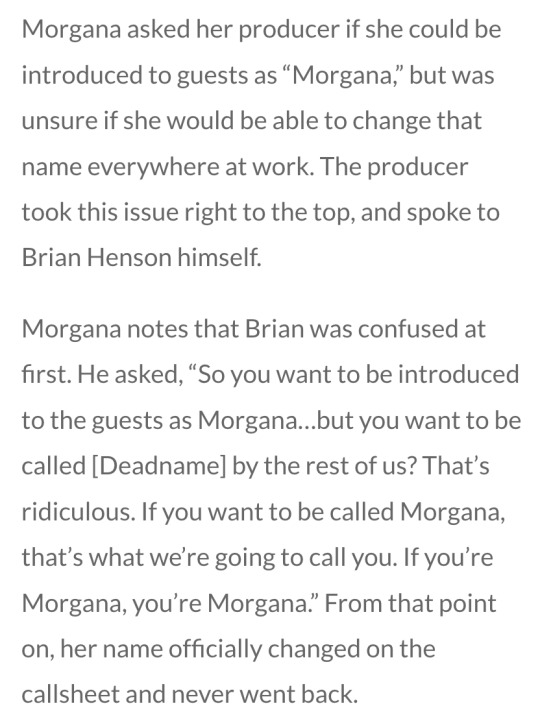
was reading this article on ToughPigs about a trans puppeteer/performer and honestly shoutout both to Morgana Ignis for being brave enough to ask for her name to be changed and Brian Henson for insta-killing her deadname
bonus comment from the author:

#muppets#the muppets#trans#queer#outdesign posts things#can't recommend the full article enough#toughpigs always does great pride articles this time of year#greatest hits
2K notes
·
View notes
Text
Beira’s Place: Thousands helped by Edinburgh rape centre set up by JK Rowling
A year on from the opening of JK Rowling’s women-only rape centre, thousands of victims have reached out for help.
A veteran of more than four decades protecting and sheltering women suffering sexual violence and domestic abuse, Isabelle Kerr was so passionate about supporting JK Rowling’s decision to fund a women-only centre that she came out of retirement to help set it up.
Speaking for the first time since Beira’s Place opened, Isabelle, 67, said: “The whole ethos of the place took me back to the grassroots of the women’s movement in Scotland, when women helped other women stay safe in an act of basic feminism.
“It was how women dealt with the practicalities brought about by the age-old problem of domestic abuse and sexual violence. I’m saddened to say very little has changed through the decades, which is why Beira’s Place has been busy from the moment we opened our doors.”
Isabelle said: “Men’s violence towards women continues unabated around the world. Justice systems continue to fail women with sentencing that rarely reflects the damage and trauma inflicted, despite these crimes carrying the possibility of a life sentence.
“We still have a culture where victims are blamed because of what they wear, where they went or what they did rather than holding the perpetrator to blame. It’s soul destroying.”
“Our phones started ringing the day we opened. They haven’t stopped. We’ve helped almost 2,000 callers looking for support. Over 250 survivors have used our safe space. Many told us they would not want to use the service if men were on the premises, either because they have been so traumatised or for cultural reasons.
Isabelle warns that much more needs to be done about identifying the escalating cycle of violence towards women. She said: “We don’t live in the kind of society where women and girls are safe from predators, stalkers, rapists and men who use coercive control to trap the vulnerable. We live in a society where women and girls have lost so much trust and hope in our criminal justice system that only 10% of violence and sex crimes are ever reported.
“Until we take these crimes more seriously, very little will change.”
591 notes
·
View notes

